Clara
Belle Williams Franklin
1856
- 1945
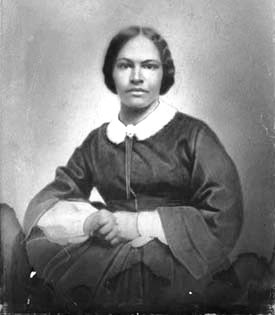
undated
photograph
Black Archives of Mid-America
Kansas City, Missouri
On Monday, August
23, 1875, just a few weeks after her 19th
birthday, Clara boarded a train in Denison
and requested a seat in the rear car,
designated by the Texas Central Railroad as
the "ladies car." It differed from the
other passenger cars by its customary
absence of smoking and swearing. The
brakeman and acting conductor, Tom Foley,
denied her request and offered her a seat in
the next-to-last car instead. Clara
refused the offer and got off the train.
On Tuesday Clara had Mr. Foley
arrested for violating the Civil Rights Bill of
1875.
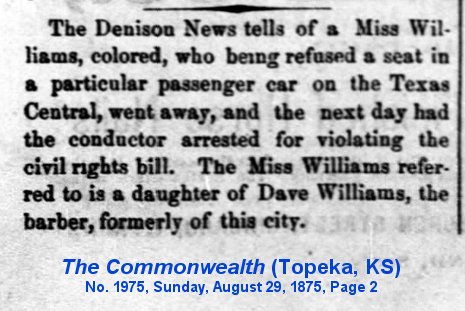
The
bill
had been passed by Congress less than six
months earlier. It provided that all
citizens "shall be entitled to the full
and equal enjoyment" of, among other
things, "public conveyances."
Violations of the act were
punishable by fines of $500 to $1000, or
jail terms of 30 days to one year.
Guilty persons were also required to
pay aggrieved parties the sum of $500.
The case was
tried in Federal court in Tyler, Texas, in
November 1875, less than three months
after Foley's arrest. By this time
Clara Williams had been hired as a public
school teacher in Denison. The
Prosecutor was Andrew Jackson Evans
(1832-1897), a former state legislator,
district judge, and Unionist. The
defense team was led by Richard Bennett
Hubbard, Jr. (1832-1901), the sitting
Lieutenant Governor of Texas and a former
Confederate Officer. He went on to
become Governor the following year, after
Richard Coke resigned to become a United
States Senator.
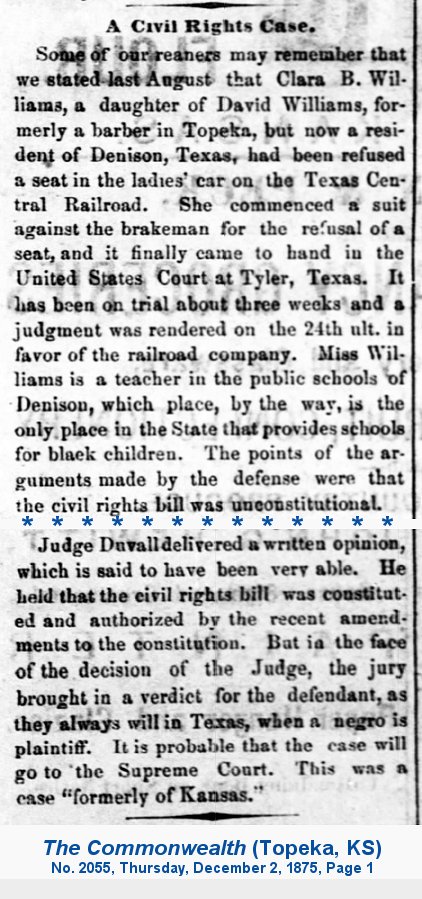
Denying a defense
motion to dismiss on the grounds that the
law was unconstitutional, the judge allowed
teh case to go forward to the jury.
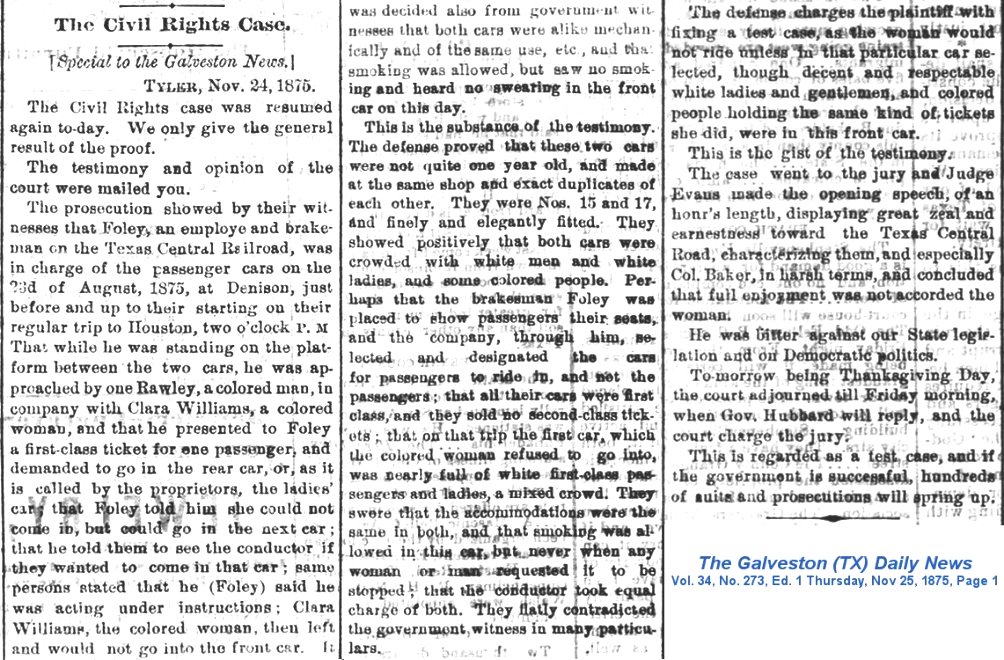
Hubbard was a
gifted orator, sometimed referred to as the
"Demosthenes of Texas." The audience
in the courtroom had to be cautioned several
times by the judge for outbursts of applause
during his argument.
Prosecutor
Evans had his moments too. The
audience laughed when he read from the Bible
(Acts, Chapter 8) about Peter and the
Ethiopian riding together in a chariot.
He argued that chariots were the first
great common carriers of both races.
Upon conclusion of his closing
argument, the jury retired for twenty
minutes before returning a verdict in favor
of the defendant.
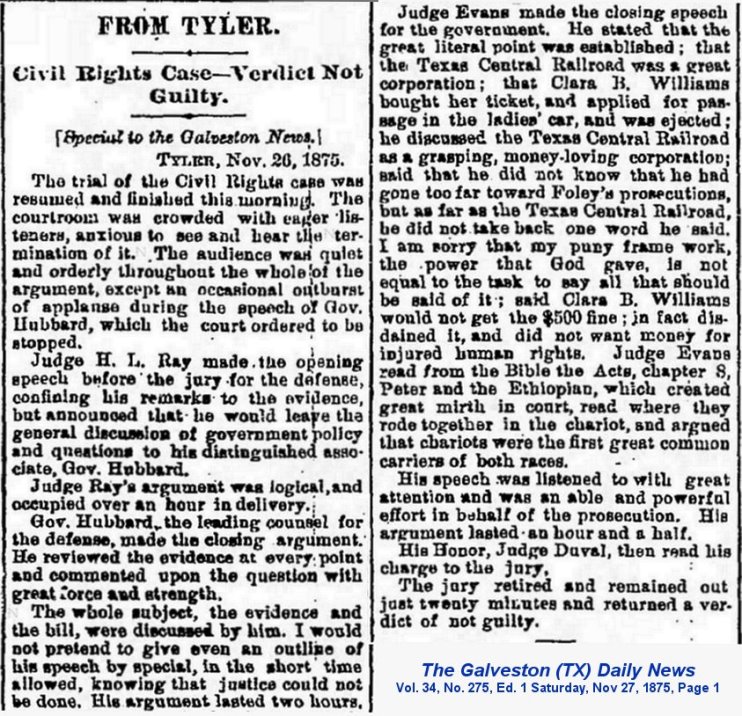
Clara's
case
did not go, as predicted by the Topeka
newspaper, to the Supreme Court. The
Civil Rights Bill of 1875 was eventually
declared unconstitutional by that court in
another case in 1883. Congress would not
pass another civil rights bill until 1957.
If the white townspeople of Denison
harbored any ill feelings towards Clara in the
wake of her complaint, it was not evident in
the local newspapers. Although her
father, Dave Williams, was frequently
criticized for alleged trouble making,
including an accusation that he was behind his
daughter's "put-up job" of a criminal suit
against the railroad, reports of Clara's
performance as a teacher were consistently
favorable and complimentary. Her
students were impressive in their end-of-year
examinations, and they seemed "to be warmly
attached to her." The consensus of
editorial opinion was that Denison was lucky
to have her.

Biography
Index
Susan Hawkins
©2025
If you find
any of Grayson
CountyTXGenWeb links inoperable,
please send me
a message.
|




